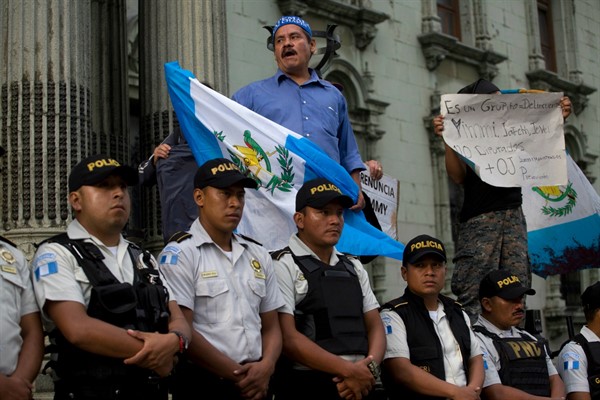During its 12 years of existence, the United Nations-backed International Commission against Impunity in Guatemala, or CICIG, pursued corruption investigations into high-level political players and business figures. The commission’s efforts resulted in hundreds of arrests and indictments, including of a former president, Otto Perez Molina, and his vice president, in 2015. CICIG’s work also helped build anti-corruption-related capacity and expertise among Guatemala’s legal community.
But CICIG was forced to shut down last year after then-President Jimmy Morales refused to renew its mandate. Since then, many judges and prosecutors have faced a campaign of harassment, verbal attacks and death threats, forcing some to flee the country.
At the same time, Guatemala is currently selecting new judges for the Supreme Court and appellate courts—important positions for ensuring the proper handling of corruption cases and respect for the rule of law. But according to Adriana Beltrán, director for citizen security at the Washington Office on Latin America, the process has been “marred by irregularities,” and by corrupt groups’ attempts to secure an outcome favorable to them. “By influencing the process by which justices are elected,” she wrote recently, “criminal actors aim to find corrupt allies willing to ensure their protection and impunity for their misdeeds.”

